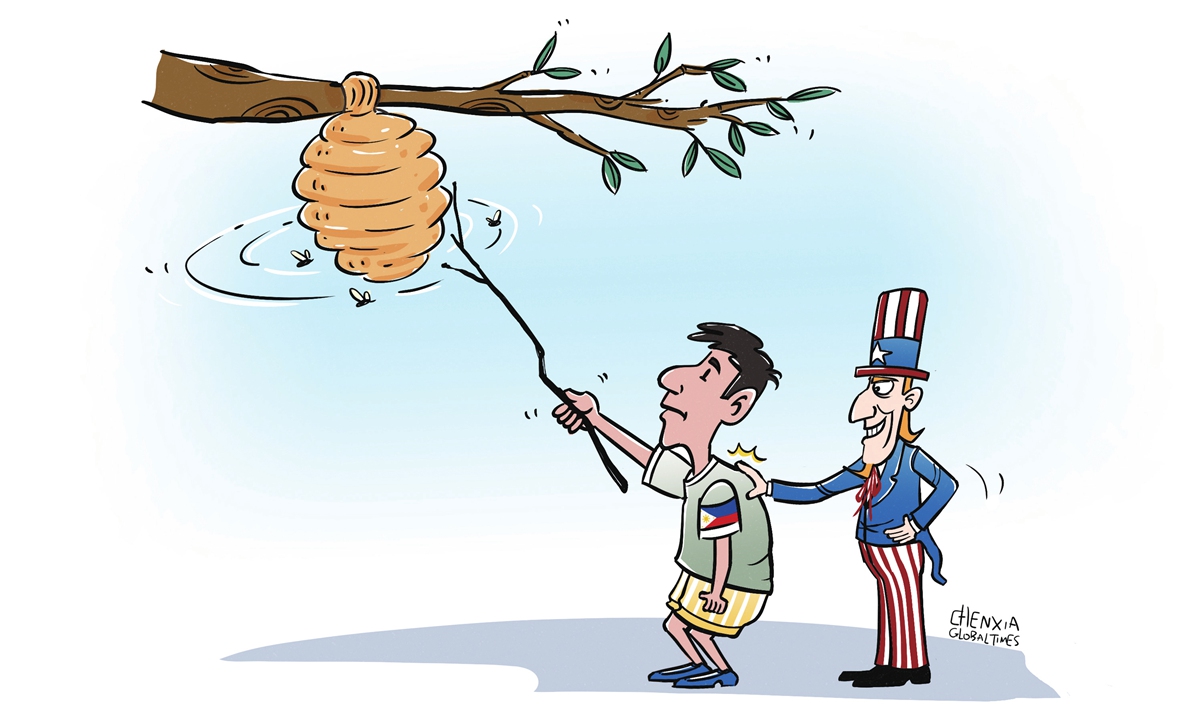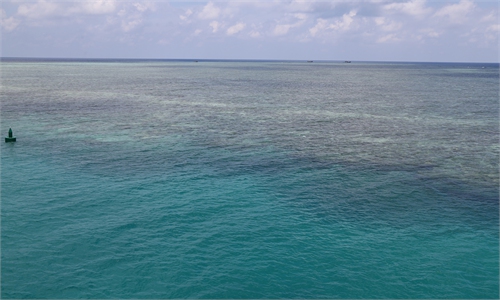Diplomacy the only right choice for China, Philippines

Illustration: Chen Xia/GT
Since last year, the Philippines has made continuous moves exacerbating the South China Sea issue. Just recently, on February 19, the Philippines and the US conducted the second phase of a third joint patrol. Then, on February 25, the Philippines Coast Guard accused China of jamming signals of Philippine ships at specific times during its operations in the South China Sea.China and the Philippines are neighboring countries, and have historically had good relations. But the territorial dispute between the two countries is increasingly becoming a major issue not only between them, but also in the South China Sea as a whole.
It is important to note that countries like the Philippines only began to claim islands and various zones in the South China Sea in the 1970s, when reports suggested that there might be huge oil and natural gas reserves in the South China Sea. It is crucial for anyone observing the territorial disputes between China and the Philippines to consider this important historical context.
It is also noteworthy that the US is not a party to the United Nations Convention on the Law of the Sea. Hence, it is farcical to see the US consistently using this treaty as an instrument against the legitimate interests of China.
If we look at the current situation, it could be explosive if the US continues to urge the Philippines to apply more and more confrontational tactics against China. It seems that the US is trying to put more and more pressure on the Marcos administration to sway the situation to benefit the US.
This is not motivated by the fundamental interests of the Filipino people. Actually, the Filipino people want to have good-neighborly relations with China as well as all kinds of cooperation involving transportation, energy and other fields. That is the right way for the Philippines to grow its economy and improve its standing in the world, rather than being promoted as a proxy of the US.
Therefore, the real factor involved in this China-Philippines territorial dispute is actually the US. Washington really needs to calm down and think about the consequences of a military conflict between China and the Philippines.
Anyone with any basic knowledge about studies involving China and the Philippines would say it is absolutely not in the Philippines' interest to use more and more aggressive tactics against China.
I personally don't believe anyone in their right mind in Washington would be committed or desperate enough to provoke a direct confrontation between China and the US to defend the Philippines. If war were to break out between China and the US, it would not just be between the two countries. It could escalate into a global confrontation and potentially lead to catastrophic consequences for mankind as a whole. I hope Washington will realize the potential consequences of military confrontation, and refrain from provoking a war between the two countries.
The world has already experienced devastating effects of war in Europe and the Red Sea. China consistently aims to exercise maximum restraint in its interactions with the Philippines, and seeks to promote peace and stability through negotiation and diplomacy. This approach is the only right choice for China and the Philippines.
The US needs to respect all countries worldwide, including those in the South China Sea, as they are independent countries with their own judgment and capability of making their own decisions, even if these decisions may not align with US interests.
Every country should prioritize its fundamental interests and the well-being of its citizens when making decisions, rather than catering to the desires of decision-makers in Washington. If the US chooses to support the Philippines in asserting an illegitimate claim against Chinese territorial integrity, China will not yield to pressure. China will stand very firmly on its feet and exert all necessary resources available to defend its sovereignty and territorial integrity.
The author is a chair professor at Soochow University and Vice President of the Center for China and Globalization. opinion@globaltimes.com.cn


